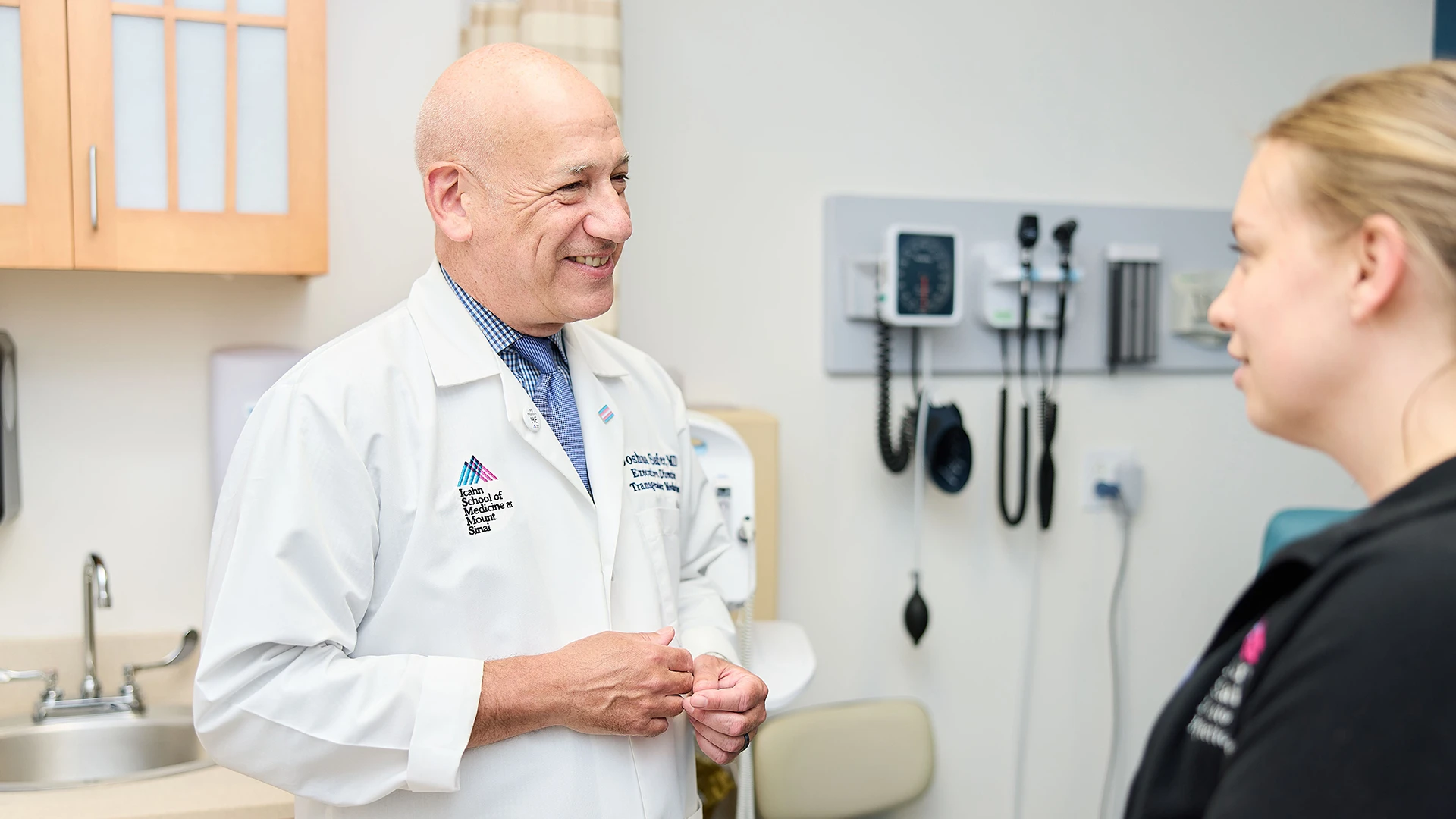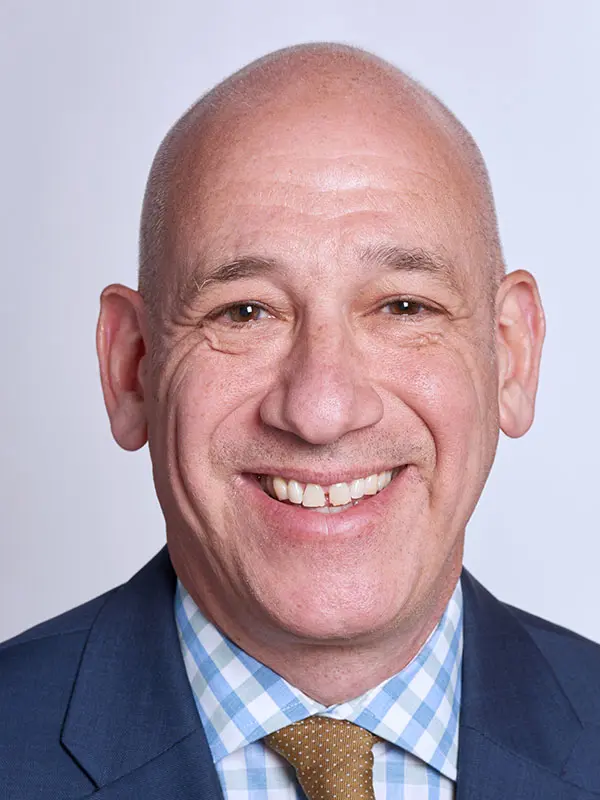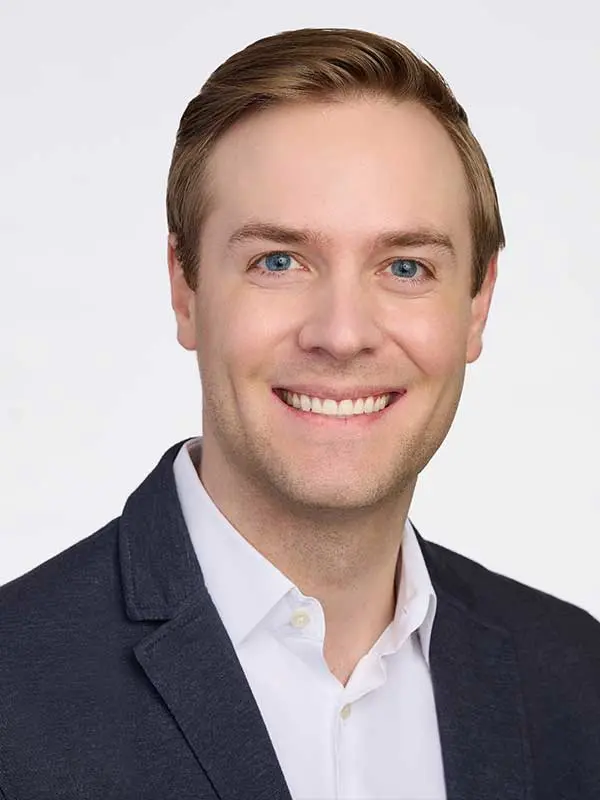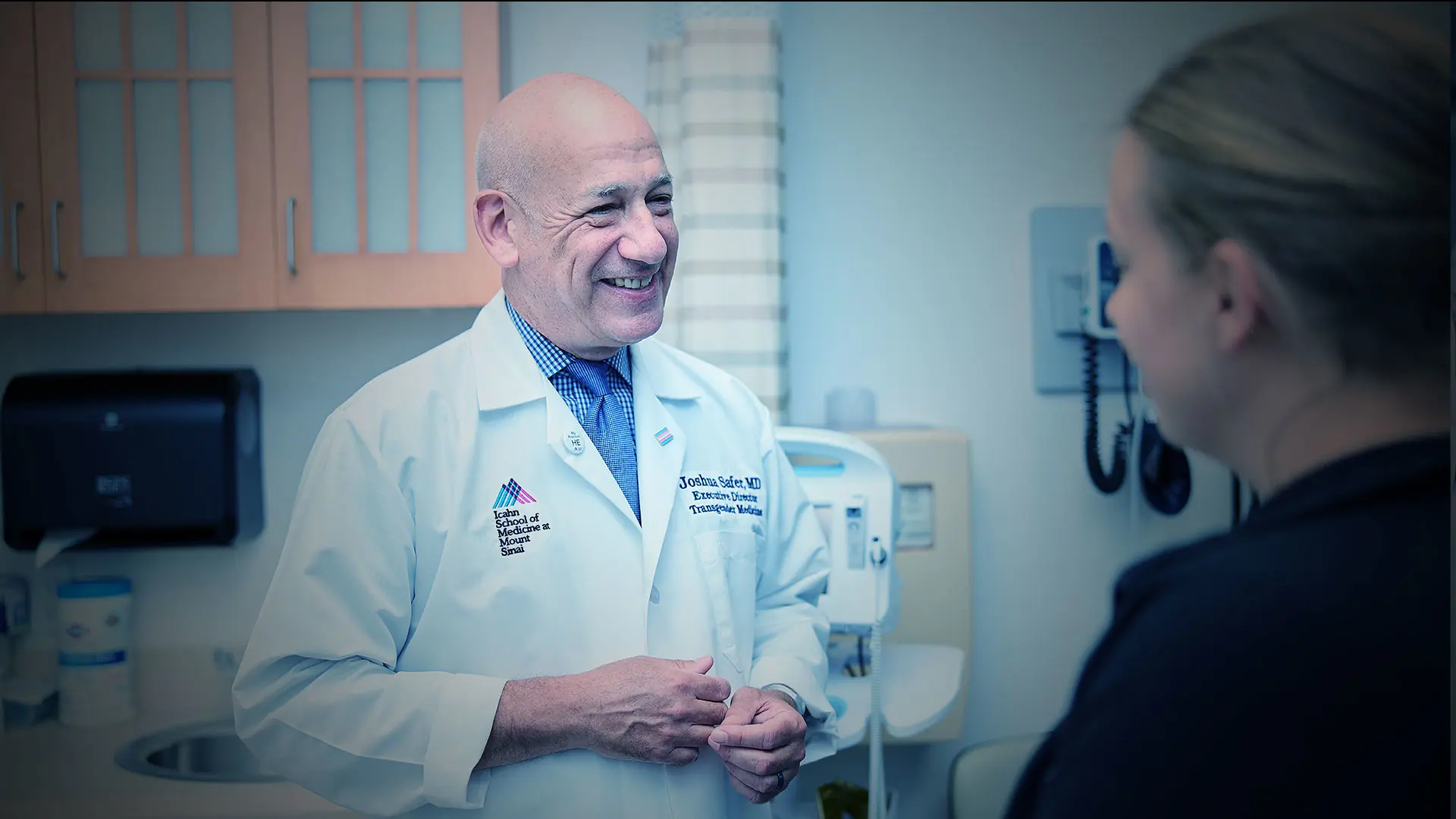Surveys suggest there may be millions of transgender and gender-diverse people in the United States. Mount Sinai’s Center for Transgender Medicine and Surgery—the most comprehensive such program of its kind in the world—is dedicated to supporting them with health care, research, and education.
An architect of the Center and a tireless engine of its success has been Joshua D. Safer, MD, FACP, the Center’s founding Executive Director, who is a Professor of Medicine (Endocrinology, Diabetes and Bone Disease) at the Icahn School of Medicine at Mount Sinai.
Since the Center’s inception in 2016, its services have expanded to include a full menu of health care options, including primary care, hormonal therapy, endocrinology, gender-affirming plastic surgery, urology, gynecology, otolaryngology, social work, spiritual care, and mental health services.
“There are perhaps 30 places around the country that offer certain parts of what we do, but we are far and away the largest program of this sort in the country, and even the world,” explains Dr. Safer, who joined the Center in 2018.
The number of transgender people in the United States might seem insignificant, but that is not the case. “In anonymous surveys, somewhere between half a percent and a full percent of people say they are transgender,” Dr. Safer explains. “If you do the math, that could be up to 3 million or more people.”
At the Center, patient volumes, for both gender-affirming hormonal therapy and gender-affirming surgery, have steadily climbed.
Focus on Research and Education
The health care needs of this group of patients can be complex, which is why continued research, and education of the next generation of clinicians, are vital aspects of the Center’s mission.
For example, Dr. Safer is interested in exploring the relative risks of various treatment regimens, since there is concern that some hormone therapy might create risks.
“People were worried that it might be unsafe to maintain estrogen therapy while a patient is set for surgery, and it was common practice for transgender women to stop estrogens during the several weeks around surgery,” Dr. Safer says. “But we don’t do that for postmenopausal women taking estrogens for hormone replacement therapy, and, in fact, we can see no difference and no benefit to having transgender people stop their hormones. I hope to disabuse people of some of these fears, and I think there are opportunities to look at what hormones do to various tissues at a more sophisticated level."

Joshua D. Safer, MD, and Eleanore Elizabeth Egan, PA
Dr. Safer was the inaugural president of the United States Professional Association for Transgender Health (USPATH) and oversaw Mount Sinai’s hosting in 2023, for the third time, of the live surgery conference of the World Professional Association for Transgender Health (WPATH). He serves on the board of directors of WPATH as well as on its Standards of Care revision committee. Dr. Safer co-wrote the Endocrine Society’s 2017 guidelines for the medical care of transgender patients, and is the chair of the Society’s current committee to revise those guidelines. He also co-wrote “Care of Transgender Persons,” a 2019 clinical practice review in The New England Journal of Medicine.
Dr. Safer and colleagues at the Center work hard to disseminate the knowledge they have accumulated. Dr. Safer was a co-author of a 2023 Endocrine Society scientific statement concerning health care disparities and endocrine health, which, he explains, “reframes increased morbidity in transgender people to be more connected to social determinants of health than to hormone treatment.” He also co-wrote “Update in Adult Transgender Medicine” for the Annual Review of Medicine, among several other publications, and co-authored several presentations at the 2023 Endocrine Society meeting, including a case report of occult endometriosis in the prostate of a transgender woman.
The Center has been innovative in its role as educator, creating fellowship programs that are unavailable elsewhere. “We at Mount Sinai established the first fellowship program for gender-affirming surgery, which sits with our plastic surgeons,” Dr. Safer says. “We also established the first fellowship program for gender-affirming psychiatry and we have a genitourinary fellowship program.”
“We were also asked by the State of New York to host a fellowship program for transgender medicine for medical providers, and we’ll train two people per year,” Dr. Safer says. And the endocrinology fellowship includes a core rotation on gender-affirming hormones, which Dr. Safer notes is “significant. We compete with the most prestigious programs nationally for this reason, and it’s one of the reasons why fellows choose our program.” Mount Sinai also offers a free online course for primary care providers of transgender health care, which has amassed thousands of students worldwide.
Despite the political issues that have swirled around transgender health care, Dr. Safer and his colleagues plan to press on.
“I’m amazed that anyone thinks that it is okay to target a vulnerable group of people and try to take away their health care,” Dr. Safer says. “We are here at Mount Sinai, and we’re not political. We are just trying to deliver health care to our patients, that’s all.”
Featured

Joshua Safer, MD
Professor of Medicine (Endocrinology, Diabetes and Bone Disease); Director, Center for Transgender Medicine and Surgery

Daniel Slack, MD
Assistant Professor of Medicine (Endocrinology, Diabetes and Bone Disease)
